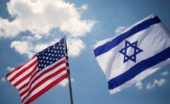Johannah Bernstein post: "eternally proud of my father’s extraordinary aeronautical engineering. legacy. here is a photo of the Canadair Water…
Wednesday Night #1899
Written by Diana Thebaud Nicholson // August 1, 2018 // Wednesday Nights // Comments Off on Wednesday Night #1899
Following Trump & Trade requires a somewhat exhausting dedication along with agility in comprehending (or at least identifying) the twists and turns of events.
Case in point: The total reversal on US-EU trade. As Simon Johnson puts it so well in his analysis for Project Syndicate, Europe’s Trade Victory in Washington:
“It is always hard to know when Trump has actually changed a policy – or when he may change it again. Still, it is worth noting that what Trump and Juncker announced was essentially a pledge to work toward exactly the kind of trade agreement that the Obama administration was negotiating with the Europeans from 2013 through the end of 2016. Work on that earlier version, known as the Transatlantic Trade and Investment Partnership (TTIP), was suspended following Trump’s inauguration.” But, but, some six weeks ago he told CBS “I think the European Union is a foe, what they do to us in trade.”
As we continue to monitor the turmoil generated by the occupant (occupier?) of the White House, we seek out analysis and historical context as refuge from tweets and other forms of instant and generally alarmist news. One particularly informative piece by journalist and historian Michael Wolraich was published recently in The Atlantic:
Tariffs Once Tore the GOP Apart—and May Be Doing So Again
It’s only a matter of time before rural voters again learn what their forebears knew: Protectionist policies are rigged against them.
[Since the time of the Founding Fathers] Tariff policy was one of the most divisive issues in American politics, because its costs and benefits were unevenly distributed. Protectionist policies offered windfalls to large corporations while burdening small businesses and farmers with higher prices. That stirred bitter resentments in less industrialized, agricultural regions, fueling North-South discord before the Civil War, and inflaming Midwestern populism in the early 20th century, splitting political parties in the process. If Trump continues his protectionist course, it could happen again.
White House foreign policy continues to be a moving target. Undoubtedly Trump is frustrated by recent revelations regarding North Korea‘s failure to live up to any of the much vaunted Singapore agreement (we all told him what would or would not happen) [Trump Promotes Diplomatic Gains, but North Korea Continues Building Missiles] or by the cavalier way in which that country provided one dog tag with possible US remains to help identify the 55 cases of remains that were given to US officials on Friday – not going to look good to military families and veterans. So to provide a distraction, an announcement from out of the blue : Trump says he’d meet with Iran without preconditions ‘whenever they want’. So far the invitation has not been greeted by enthusiasm: Iran rejects Trump offer of talks as a dream, without value
Speaking of twists and turns, we never expected to find ourselves in sympathy with the Koch brothers’ network, however we may have to revise our stand slightly now that they are under attack from Donald Trump “The globalist Koch Brothers, who have become a total joke in real Republican circles, are against Strong Borders and Powerful Trade,” Trump wrote on Twitter. “I never sought their support because I don’t need their money or bad ideas.” [Trump lashes out at Koch brothers after political network slams White House]
It is election season in many parts of the world. Following Imran Khan’s victory last Wednesday in Pakistan, (do read our friend Uday Bhaskar on Indian response to Imran Khan’s election victory in Pakistan), there was the no-contest in Cambodia (Hun Sen re-elected in landslide victory after brutal crackdown); vote counting continues in Mali‘s presidential election where violent incidents halted the polling process in about three percent of the country’s voting stations, but otherwise things went quite smoothly. Both candidates in Zimbabwe’s first presidential, parliamentary, and local government elections since Robert Mugabe was ousted are claiming victory, but it looks as though we will have to wait a bit longer for the results.
As committed news junkies, we spend lots of time combing through the Internet, still, we were astonished to read that Americans are now spending 11 hours each day consuming media and that does not include print formats like books or magazines. When do they work? What does this tell us about concentration on tasks? However, “Despite all the new technologies people can now use to access media, the regular old radio was the most ubiquitous form of media audiences interacted with during the period” and that was attributed to the presence of radios in cars.
As none of this is uplifting news, we are pleased to sweeten the pot, as it were, with the delightful Quartz Obsession “Honey” full of fascinating facts – did you know that 80%: of US crops that rely on honeybees for pollination, or that China leads the world in honey exports and that Honey laundering is the practice of importing China-produced honey, which is often watered down with corn syrup or sugar water. Chinese honey is banned in the US; producers get around it by having it shipped to another country, then relabeled and sent to the US as a product of the middleman.



